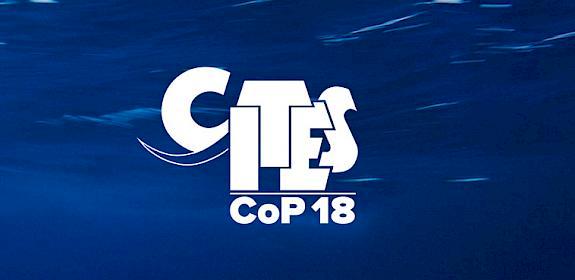EU urged to consider designating environmental crime a high priority
Brussels, Belguim, April 2017—A hearing organized by MEPsforWildlife last week urged the European Union (EU) to prioritize environmental crime as a key issue to be addressed over the coming four years.
The meeting, with the participation of representatives of 12 EU Member States, the European Commission, Europol, and a number of non-governmental organizations, was called after a Europol analysis did not recommend prioritizing wildlife crime during the next EU Policy Cycle for Serious and Organized Crime, which runs from 2018 to 2021.
Europol’s Serious and Organized Crime Threat Assessment (SOCTA) is the principal resource used by the EU when determining priorities for the forthcoming Policy Cycle.
Wildlife trafficking could be more effectively tackled in the EU if it was identified as a priority—it would mean additional human and financial resources both at the national and the EU level, as well as more strategic direction and operational engagement by Europol
Katalin Kecse-Nagy, TRAFFIC’s Regional Director in Europe”Nevertheless, we are encouraged to see the SOCTA report recommends prioritizing actions to address money laundering and online trade—both of these are as relevant to wildlife trafficking as other forms of organized crime.”
Under EU rules, Member States are permitted to propose priority crime areas that are not recommended as such by the Europol analysis.
”The door is still open and we urge Member States to consider recommending the EU adopts wildlife crime as one of the priority crime areas,” said Kecse-Nagy.
Magdalena Norwisz, from TRAFFIC’s office in Brussels spoke about the EU Trade in Wildlife Information eXchange (EU-TWIX), a secure messaging and information database for enforcement officers from European countries to share intelligence about wildlife trafficking cases. She highlighted a number of recent cases and the regular reviews carried out by TRAFFIC of behalf of the EU concerning important wildlife seizures in the region each year.
Other speakers highlighted, among other issues, the successful and Europol-facilitated co-operation between Spanish and Greek authorities to bring down a criminal network smuggling European Eels to Asia and the poaching of a young rhino in a Paris zoo—the subject of an ongoing investigation by French authorities.
“The EU recently adopted a comprehensive Action Plan Against Wildlife Trafficking: recognizing wildlife trafficking as one of the priority crime areas for the EU would greatly facilitate the effective delivery of the Plan,” said Kecse-Nagy.
“The brazen poaching of a rhino in a French zoo last month is a shocking example of how criminals are treating wildlife crime as a low-risk, high reward venture. The EU must step up the risk for criminals significantly by making wildlife crime a priority with enforcement authorities.”
A final decision on the priority crime areas for the next EU Policy Cycle will be taken in early June by the Council of Justice and Home Affairs Ministers of the EU.




